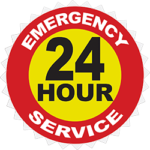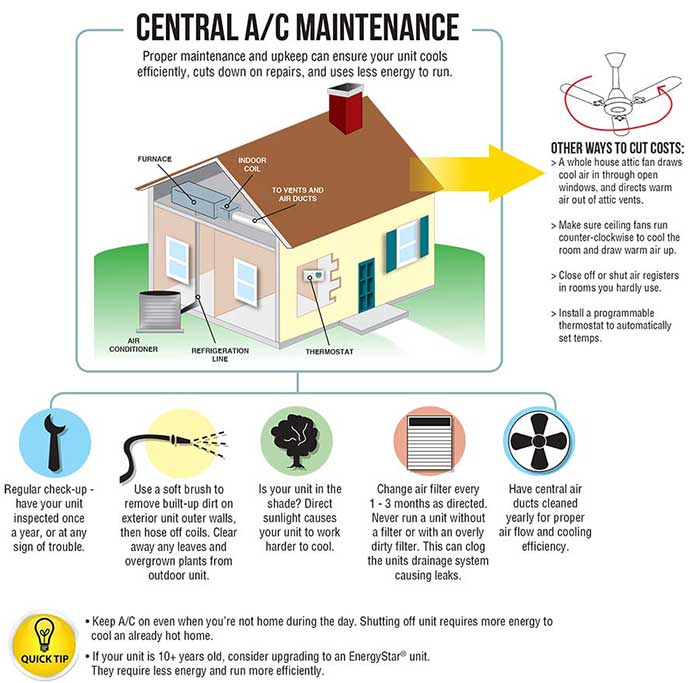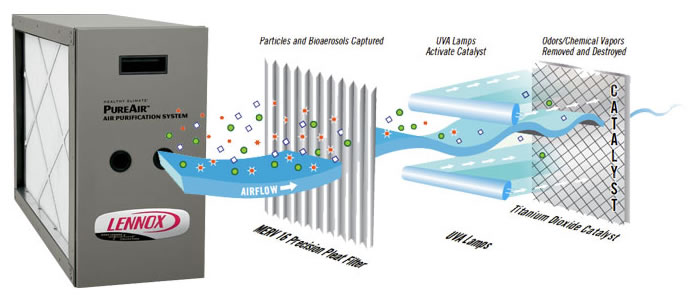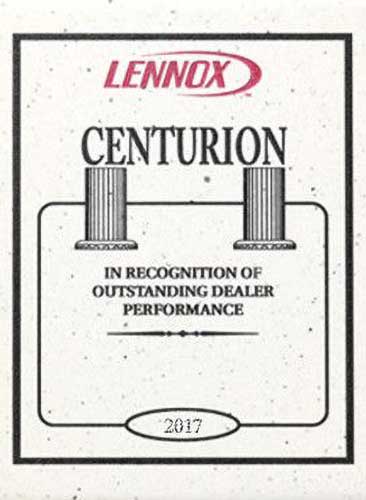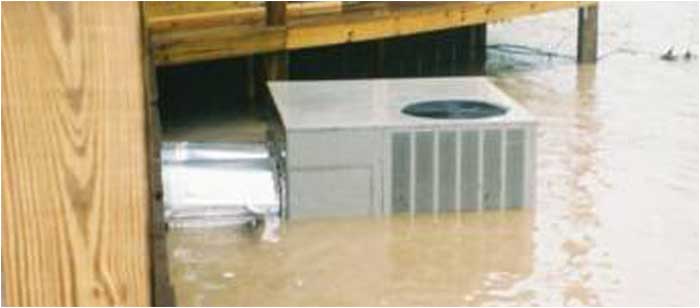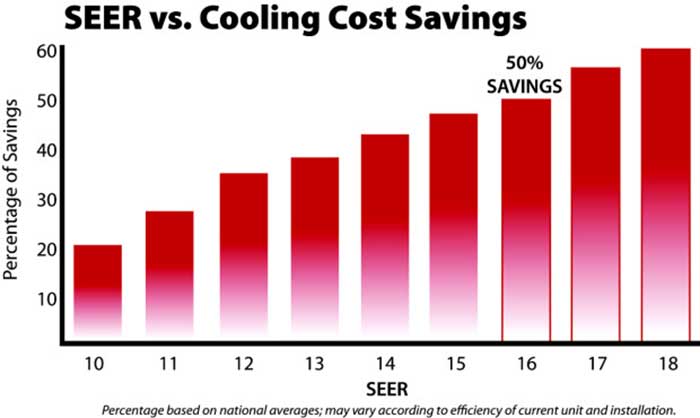
Save money with our Energy Savings Calculator
Calculator how much money you can save by upgrading your unit to a more efficient SEER (Seasonal Energy Efficiency Ratio) with the link above!
What is SEER?
SEER (Seasonal Energy Efficiency Ratio) is the ratio of the total cooling output of an air conditioner over the length of a season to the total amount of energy consumed during that period. The InspectAPedia website gives a good account of the SEER definition and its meaning in practical terms.
The cooling power of an air conditioner is normally defined in terms of BTU (British Thermal Units) per hour. A few decades ago, when energy was relatively cheap, buyers chose models for their cooling power alone. These days, with the ever-rising costs of energy, buyers are more concerned with the cost to produce the level of cooling power they want.
In other words, the operating cost.
The SEER rating of AC units allows you to compare operating costs between one model and the next. Many years ago, it wouldn’t have been uncommon to find an air conditioner with a SEER of 6 to 10.
However, from January 2015, the U.S. Department of Energy laid down minimum regional standards for split-system central air conditioners. In the Southwestern region of the country, which includes Nevada, the minimum SEER rating must be 14.
However, there are HVAC units that can reach upwards of 26 SEERs.
The Facts About SEER Ratings
How SEER Ratings Are Determined
All air conditioners are rated according to efficiency tests stipulated by the U.S. Department of Energy (DOE). Tests assume an outdoor temperature of 82˚F, an indoor temperature of 80˚F and an indoor relative humidity of 50%.
This rating system implies that an AC unit with a SEER rating of 16 is 60% more efficient than a 10 SEER unit. Of course, this is only relevant if the conditions in your home match those of the test. It would be impossible for the DOE to rate the efficiency according to the conditions in each home.
In reality, climate varies greatly across the country. In Las Vegas, the average July maximum temperature is 106˚F, way above the 82˚F used to rate the air conditioner. This will affect the rated efficiency of the unit.
There are other factors that will affect the efficiency of an air conditioning system. These include the quality of the home insulation and the presence of any leaks in the system or associated ducting.
You Can Use SEER to Calculate Your Energy Consumption
Wikipedia gives a good breakdown of how to do this calculation. You can calculate your energy consumption just by using the ratings of your air conditioner.
As an example, let’s take a 24,000 BTU/h air conditioner unit with a SEER rating of 16 BTU/Wh operating 8 hours a day, for 125 days over the summer season.
The total cooling output over this period would be: 24000 x 8 x 125 = 24,000,000 BTU.
With a SEER rating of 16, the electrical energy usage would be: 24,000,000 / 16 = 1,500,000 Wh = 1500 kWh.
If your electricity cost is 12c/kWh, then your total electricity cost over this period would be: 1500 x 0.12 = $180.
Remember, this is based on conditions used for the SEER rating, which are an outdoor temperature of 82˚F, an indoor temperature of 80˚F and humidity of 50%.
With higher outdoor temperatures experienced in the Las Vegas summer, you would use more electricity to cool the air down.
The Minimum SEER Rating
The DOE stipulates minimum standards for split air conditioning systems in each region of the U.S. These regulations came into effect as of January 2015. Nevada falls within the Southwestern region where a minimum SEER rating of 14 is mandatory.
The Payback from Higher SEER Rated Air Conditioners
There is quite a jump in price from SEER 12 to the higher rated air conditioners. However, they typically pay for themselves through energy savings within a few years. The exact break-even point will depend largely on how many hours a day your AC unit runs.
SEER Rating in Terms of Energy
The Seasonal Energy Efficiency Ratio (SEER) is defined as the ratio of the total cooling output of an air conditioner over a season (BTU), to the total amount of energy consumed by the unit during that period (Wh). An air conditioner with a SEER of 14 will use 1Wh of electricity to extract 14 BTUs of heat from the air in your home.
Higher SEER Ratings Help the Environment
By reducing the amount of electricity consumed, higher SEER rated air conditioners can help in the global drive to save the environment. The energy savings equate to taking a couple of vehicles off the road over the life of the AC unit.
SEER Ratings Decrease Over Time
Air conditioners become less efficient as time goes on, with a corresponding decrease in their SEER rating. The best way to prolong the lifespan of your AC unit is to schedule regular air conditioning maintenance with a professional HVAC company.


